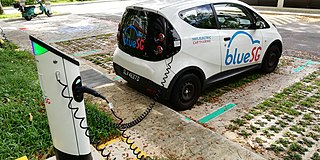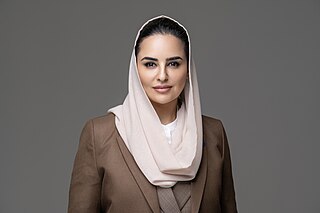Related Research Articles

The economy of Bhutan is based on agriculture and forestry, which provide the main livelihood for more than 60% of the population. Agriculture consists largely of subsistence farming and animal husbandry. Rugged mountains dominate the terrain and make the building of roads and other infrastructure difficult. Bhutan is among the richest by gross domestic product (nominal) per capita in South Asia, at $3,491 as of 2022, but it still places 153rd, and among the poorest in the world. The total gross domestic product is only $2,653 million, and 178th according to IMF.

Gross domestic product (GDP) is a monetary measure of the market value of all the final goods and services produced and rendered in a specific time period by a country or countries. GDP is often used to measure the economic health of a country or region. Definitions of GDP are maintained by several national and international economic organizations, such as the OECD and the International Monetary Fund.

The economy of Kazakhstan is the largest in Central Asia in both absolute and per capita terms. In 2021, Kazakhstan attracted more than US$370 billion of foreign investments since becoming an independent republic after the collapse of the former Soviet Union.

The economy of Vietnam is a developing mixed socialist-oriented market economy. It is the 35th-largest economy in the world by nominal gross domestic product (GDP) and the 26th-largest economy in the world by purchasing power parity (PPP). It is a lower-middle income country with a low cost of living. Vietnam is a member of the Asia-Pacific Economic Cooperation, the Association of Southeast Asian Nations and the World Trade Organization.

Genuine progress indicator (GPI) is a metric that has been suggested to replace, or supplement, gross domestic product (GDP). The GPI is designed to take fuller account of the well-being of a nation, only a part of which pertains to the size of the nation's economy, by incorporating environmental and social factors which are not measured by GDP. For instance, some models of GPI decrease in value when the poverty rate increases. The GPI separates the concept of societal progress from economic growth.
A green economy is an economy that aims at reducing environmental risks and ecological scarcities, and that aims for sustainable development without degrading the environment. It is closely related with ecological economics, but has a more politically applied focus. The 2011 UNEP Green Economy Report argues "that to be green, an economy must not only be efficient, but also fair. Fairness implies recognizing global and country level equity dimensions, particularly in assuring a Just Transition to an economy that is low-carbon, resource efficient, and socially inclusive."

Clean technology, also called cleantech or climatetech, is any process, product, or service that reduces negative environmental impacts through significant energy efficiency improvements, the sustainable use of resources, or environmental protection activities. Clean technology includes a broad range of technology related to recycling, renewable energy, information technology, green transportation, electric motors, green chemistry, lighting, grey water, and more. Environmental finance is a method by which new clean technology projects can obtain financing through the generation of carbon credits. A project that is developed with concern for climate change mitigation is also known as a carbon project.
Financial inclusion is the availability and equality of opportunities to access financial services. It refers to processes by which individuals and businesses can access appropriate, affordable, and timely financial products and services - which include banking, loan, equity, and insurance products. It provides paths to enhance inclusiveness in economic growth by enabling the unbanked population to access the means for savings, investment, and insurance towards improving household income and reducing income inequality

The Nigerian Economic Summit Group (NESG) is a non-profit, non-partisan, private sector organisation with a mandate to promote and champion the reform of the Nigerian economy into a modern, globally competitive, sustainable, inclusive, open economy.

Green growth is a concept in economic theory and policymaking used to describe paths of economic growth that are environmentally sustainable. It is based on the understanding that as long as economic growth remains a predominant goal, a decoupling of economic growth from resource use and adverse environmental impacts is required. As such, green growth is closely related to the concepts of green economy and low-carbon or sustainable development. A main driver for green growth is the transition towards sustainable energy systems. Advocates of green growth policies argue that well-implemented green policies can create opportunities for employment in sectors such as renewable energy, green agriculture, or sustainable forestry.
The OECD Better Life Index, created in May 2011 by the Organisation for Economic Co-operation and Development, is an initiative pioneering the development of economic indicators which better capture multiple dimensions of economic and social progress.

The World Resources Forum (WRF) is a non-profit organisation for sharing knowledge about the economic, political, social and environmental implications of global resource use. WRF promotes resource productivity among researchers, policymakers, business, NGOs and the public. In addition to organizing international and regional conferences, the WRF Secretariat coordinates multistakeholder dialogue projects, amongst others the Sustainable Recycling Initiative (SRI) as well as the H2020 projects Towards a World Forum on Raw Materials (FORAM), and CEWASTE. The WRF contributes to other EC-projects and projects with the German development organisation GiZ, UNEP and UNIDO.

The 2030 Agenda for Sustainable Development, adopted by all United Nations members in 2015, created 17 world Sustainable Development Goals (SDGs). They were created with the aim of "peace and prosperity for people and the planet..." – while tackling climate change and working to preserve oceans and forests. The SDGs highlight the connections between the environmental, social and economic aspects of sustainable development. Sustainability is at the center of the SDGs.

Vietnam joined the World Bank Group (WBG) on 21 September 1956. Before the mid-1980s, Vietnam was one of the world's least developed countries. A series of economic and political reforms launched in 1986, known as Đổi Mới, caused Vietnam to experience rapid economic growth and development, becoming a lower middle-income country. The World Bank (WB) has maintained a development partnership with Vietnam since 1993. As of 25 March 2019, it has committed a total of US$24 billion in loans, credits, and grants to Vietnam through 165 operations and projects, 44 of which are active as of 2019 and comprise US$9 billion. With an estimated extreme poverty rate below 3% and a GDP growth rate of 7.1% in 2018, Vietnam's economy continues to show fundamental strength and is supported by robust domestic demand and export-oriented manufacturing.

Sustainable Development Goal 11, titled "sustainable cities and communities", is one of 17 Sustainable Development Goals established by the United Nations General Assembly in 2015. The official mission of SDG 11 is to "Make cities inclusive, safe, resilient and sustainable". The 17 SDGs take into account that action in one area will affect outcomes in other areas as well, and that development must balance social, economic and environmental sustainability.

Sustainable Development Goal 9 is about "industry, innovation and infrastructure" and is one of the 17 Sustainable Development Goals adopted by the United Nations General Assembly in 2015. SDG 9 aims to build resilient infrastructure, promote sustainable industrialization and foster innovation.

Sustainable Development Goals and Nigeria is about how Nigeria is implementing the Sustainable Development Goals within the thirty-six states and its Federal Capital Territory (FCT). The Sustainable Development Goals (SDGs) consist of seventeen global goals designed as a "blueprint to achieve a better and more sustainable future for all". Each of the 17 goals is expected to be achieved by 2030 in every country around the world.
Sustainable Development Goals and Lebanon explains major contributions launched in Lebanon towards the advancement of the Sustainable Development Goals SDGs and the 2030 agenda.

The Digital Cooperation Organization (DCO) is a global multilateral body launched in November 2020. It aims at enabling digital prosperity for all by accelerating the sustainable and inclusive growth of the digital economy and facilitating cooperation in response to the dynamic challenges of the digital era. Created to address the diverse aspects of the digital landscape, the DCO seeks to encourage cooperation among Member States in areas including digital innovation and digital governance. As of January 2024, Member States include Bahrain, Bangladesh, Cyprus, Djibouti, The Gambia, Ghana, Greece, Jordan, Kuwait, Morocco, Nigeria, Oman, Pakistan, Qatar, Rwanda and Saudi Arabia.

Deemah bint Yahya AlYahya is a Saudi digital economy expert and a tech diplomat. In 2021, she was appointed as the Secretary-General of the Digital Cooperation Organization, an international intergovernmental organization founded in 2020 by Bahrain, Jordan, Kuwait, Pakistan, and Saudi Arabia, leading the multilateral organization focusing on fostering international cooperation among key stakeholders to accelerate the growth of an inclusive and sustainable digital economy. She is the founding Secretary-General of the organization, and the first Saudi woman to hold the secretariat of an international organization.
References
- ↑ "WEF – The Inclusive Development Index 2018". eTrade for all. Retrieved 12 August 2020.[ permanent dead link ]
- ↑ Duffin, Erin. "Leading advanced economies according to the Inclusive Development Index in 2018". Statista. Retrieved 12 August 2020.
- ↑ The Inclusive Development Index 2018-Summary and Data Highlights (PDF). Cologny/Geneva Switzerland: World Economic Forum. 2018. p. 2. Retrieved 12 August 2020.